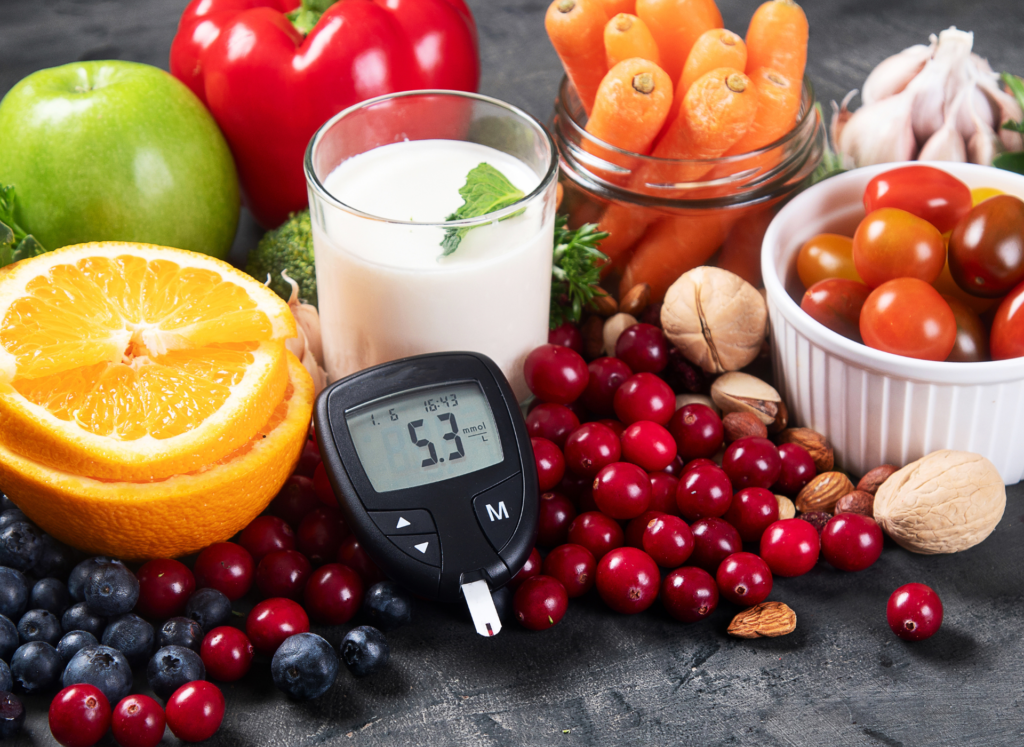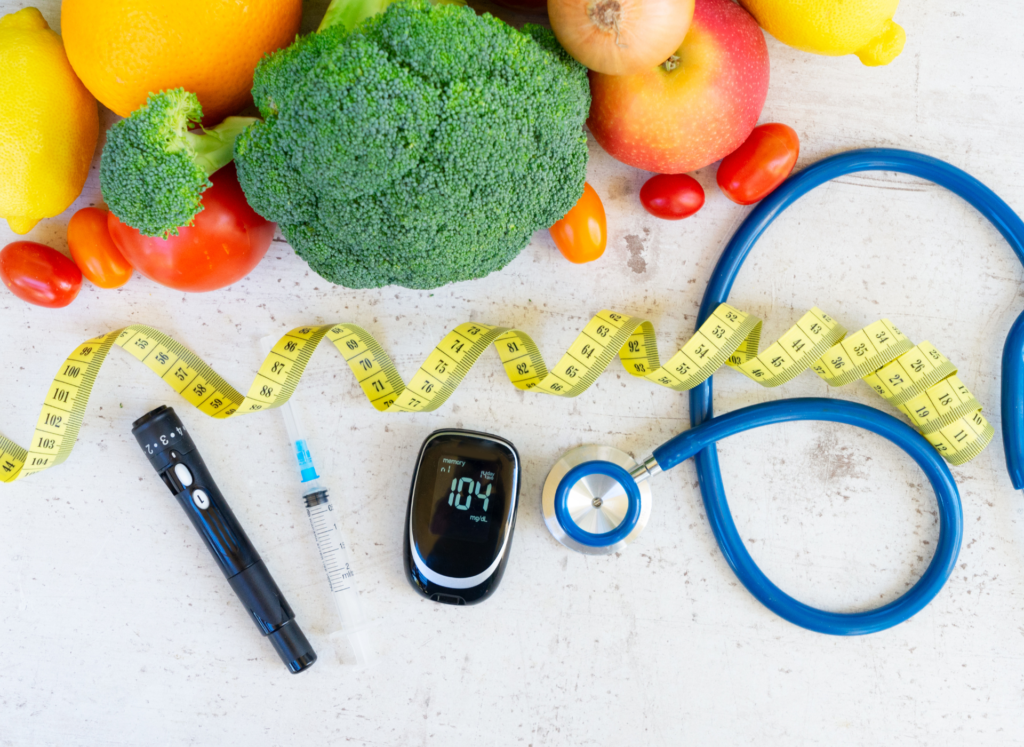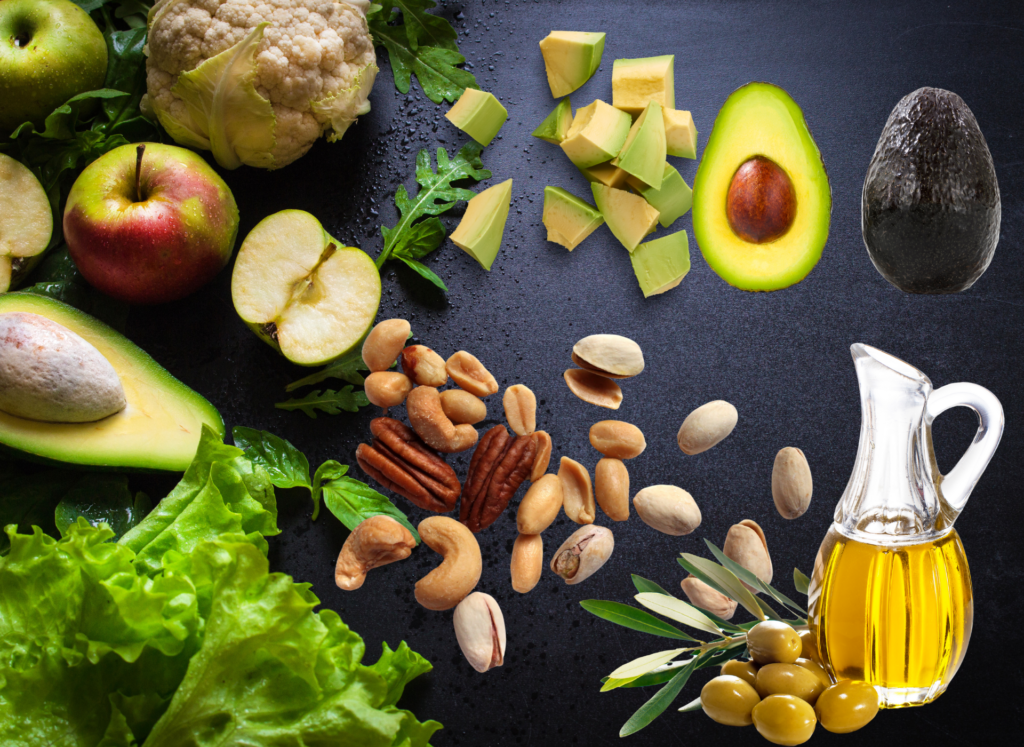Diabetes, a chronic condition characterized by high blood sugar levels
Diabetes is primarily caused by the body’s inability to produce enough insulin or use it effectively.

The two main types are Type 1 diabetes, where the immune system attacks insulin-producing cells, and Type 2 diabetes, often linked to lifestyle factors such as poor diet, lack of physical activity, and obesity.
Major Cause of Diabetes
The predominant cause of Type 2 diabetes is insulin resistance, a condition where cells in the muscles, fat, and liver don’t respond well to insulin, leading to elevated blood sugar levels. Factors contributing to insulin resistance include:
Unhealthy Diet: Diets high in processed foods, sugars, and unhealthy fats promote insulin resistance and weight gain.
Obesity: Excess body fat, especially around the abdomen, increases the risk of developing insulin resistance. Sedentary Lifestyle: Physical inactivity makes it harder for the body to manage blood sugar effectively.
A balanced and healthy diet is crucial in preventing Type 2 diabetes. Here’s how:

Change Your Diet Fix Diabetes
Low Glycemic Index Foods: Foods with a low glycemic index (GI) cause slower increases in blood sugar. Examples include whole grains, legumes, and non-starchy vegetables. Studies show that diets rich in low-GI foods improve insulin sensitivity, reducing the risk of diabetes.

This Is What Most People Do
Fiber-Rich Foods: Fiber helps slow the absorption of sugar, preventing spikes in blood sugar. Consuming fiber-rich foods like fruits, vegetables, and whole grains has been linked to a significantly lower risk of Type 2 diabetes. A study published in Diabetologia confirmed that a diet high in fiber can reduce the risk by about 25%.

Types Of Diets To Improve Your Health
Healthy Fats: Replacing saturated fats with unsaturated fats—found in avocados, nuts, seeds, and olive oil—can improve insulin sensitivity. The American Journal of Clinical Nutrition highlighted that unsaturated fats, particularly omega-3s, are vital in reducing the risk of Type 2 diabetes.

Lose Weight & Stop Diabetes
2. Portion Control and Calorie Balance: Maintaining a healthy weight by managing portion sizes and caloric intake reduces the likelihood of obesity, a major risk factor for diabetes. Research published in The Lancet found that weight loss through calorie control can lower the risk of developing diabetes by up to 60%.
Minimizing Sugar and Refined Carbohydrates: Reducing sugary drinks, snacks, and refined carbs can prevent insulin spikes. Studies, including one by the Harvard School of Public Health, show that high sugar intake is a leading contributor to the rise in diabetes rates globally.

Home Exercises Works As Well
3. Exercise Regularly: Engage in at least 150 minutes of moderate physical activity per week. Physical activity helps muscles use glucose for energy, reducing blood sugar levels and improving insulin sensitivity.

Reduce Diabetes By Losing Weight
4. Maintain a Healthy Weight: Losing even 5-10% of body weight can significantly reduce diabetes risk. The Diabetes Prevention Program study showed that modest weight loss through dietary changes and exercise can delay or prevent Type 2 diabetes by up to 58%.

Avoid Processed Foods: Limit processed and sugary foods in your diet. A study in The BMJ found that ultra-processed foods increase the risk of diabetes.
In conclusion, adopting a healthy, balanced diet rich in whole foods, fiber, and healthy fats, combined with regular exercise and weight management, is a proven method to prevent diabetes. Making these lifestyle changes can significantly reduce the risk of developing Type 2 diabetes, promoting long-term health and well-being.

Menu

